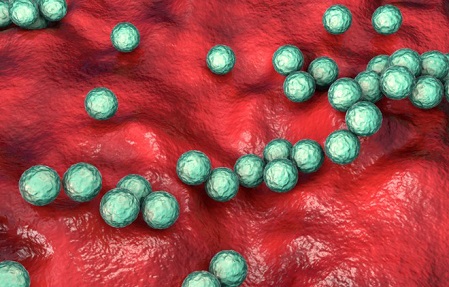Nikhil Prasad Fact checked by:Thailand Medical News Team Jun 16, 2024 1 year, 6 months, 4 days, 14 hours, 43 minutes ago
Medical News: A rare and lethal bacterial infection known as streptococcal toxic shock syndrome (STSS) is spreading rapidly in Japan. This disease, caused by Group A Streptococcus (GAS) bacteria, is known for its ability to kill within 48 hours of infection. The National Institute of Infectious Diseases reports that Japan has already recorded 977 cases as of 2nd of June 2024, surpassing last year's total of 941 cases.
https://www.niid.go.jp/niid/en/survaillance-data-table-english/12704-idwr-sokuho-data-e-2422.html
 Flesh-Eating Bacteria on the Rise in Japan
Flesh-Eating Bacteria on the Rise in Japan
The surge in STSS cases coincides with the relaxation of COVID-19 restrictions, raising concerns about potential global implications.
What is STSS?
STSS is a severe infection characterized by rapid onset and progression. According to medical experts, STSS is caused by Group A Streptococcus bacteria, leading to high fever, severe pain, low blood pressure, and potential organ failure. The bacteria produce toxins that trigger an overwhelming inflammatory response, causing widespread tissue damage, necrosis (flesh-eating), and shock. This rapid deterioration can result in death within 48 hours if not treated promptly.
Vulnerable Populations and Symptoms
The infection predominantly affects individuals over 50, who are more susceptible to severe outcomes. Initial symptoms include sudden severe pain, high fever, and redness at the site of infection. Dr Ken Kikuchi, an infectious disease specialist at Tokyo Women’s Medical University, explains, "Most deaths occur within 48 hours. Swelling noticed in the morning can spread to the rest if the body by noon, leading to death within two days."
Factors Contributing to the Rise
Experts attribute the increase in STSS cases to several factors. The easing of COVID-19 restrictions has led to increased social interactions, facilitating the spread of infections. Additionally, there has been a general rise in GAS infections as reported in various
Medical News coverages, increasing the likelihood of severe STSS cases. The bacteria can enter the bloodstream and organs quickly, causing multi-organ failure in a short period.
Global Risk and Preventive Measures
Although the current outbreak is concentrated in Japan, there is potential for global spread due to international travel. Medical experts stress the importance of maintaining good hygiene practices, such as regular hand washing and prompt treatment of any skin injuries, to prevent STSS. Early signs of the infection should prompt immediate medical attention to avoid severe outcomes.
Countries can enhance surveillance and public health education to manage and control outbreaks effe
ctively. Public health measures, including monitoring and a quick response to new cases, are essential to contain the spread of this dangerous infection.
Steps Taken in Japan
Japanese health authorities are actively monitoring the situation and implementing measures to curb the spread of STSS. Public awareness campaigns inform people about the symptoms and severity of the disease, encouraging prompt medical care if symptoms appear. Hospitals are on high alert to identify and treat STSS cases swiftly, and enhanced hygiene practices are being promoted. Efforts are also being made to improve wound care and ensure timely treatment of infections to reduce transmission and mortality rates.
Lessons for Other Nations
Other countries can learn from Japan's comprehensive approach to improving their own preparedness and response strategies. Educating healthcare providers and the public about recognizing early symptoms and seeking timely medical care is crucial. Enhanced hygiene practices and vigilant monitoring of potential outbreaks can help prevent the spread of STSS beyond Japan's borders.
Conclusion
The rise of STSS in Japan is a stark reminder of the dangers posed by bacterial infections, especially in the post-COVID era. As the world becomes increasingly interconnected, the potential for global spread of such infections cannot be ignored. Vigilance, education, and prompt medical intervention are key to preventing widespread outbreaks and ensuring public health safety.
For more about streptococcal toxic shock syndrome (STSS), keep on logging to Thailand
Medical News.
Read Also:
https://www.thailandmedical.news/news/scientists-uncover-that-the-global-surge-of-invasive-group-a-streptococcal-infections-are-being-driven-by-the-m1uk-strain
https://www.thailandmedical.news/news/breaking-new-strain-of-group-a-streptococcus-bacteria-type-3-93-behind-rising-infections-in-united-kingdom-netherlands-and-possibly-japan
